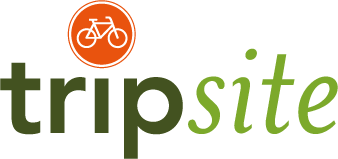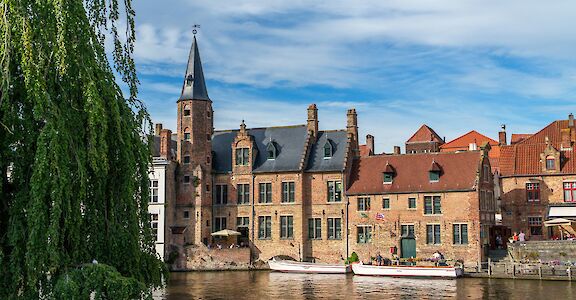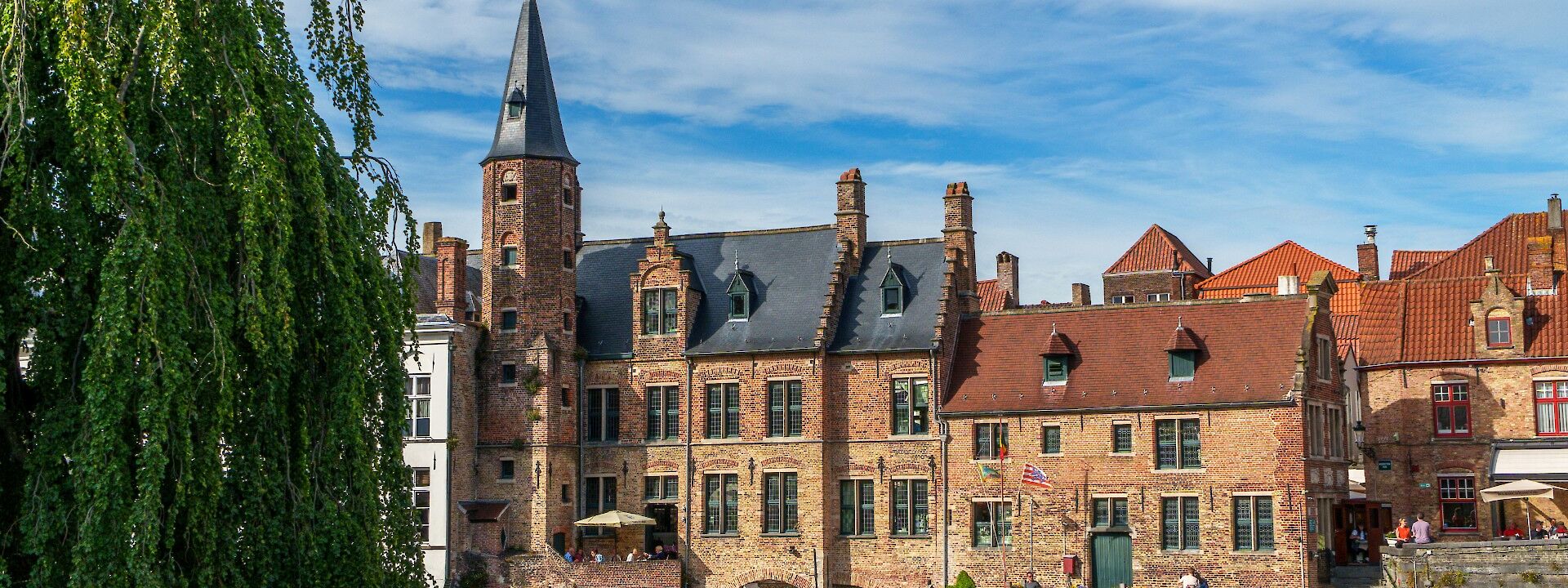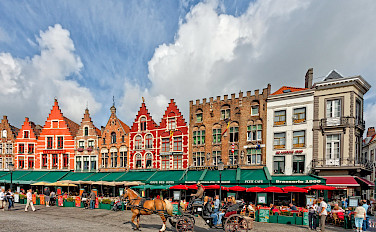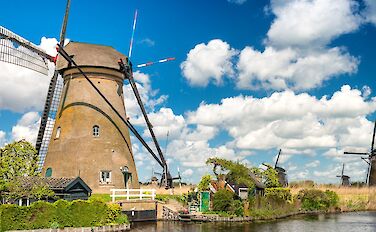Bruges to Amsterdam aboard the Magnifique II
Our group of about thirty travelers from around the world was set to start biking country lanes and byways from Bruges to Amsterdam, while coming home every day to the Magnifique II luxury barge.
Any pre-ride jitters settled during the group’s evening walking tour of Bruges. With swans rippling canal waters next to an old convent, our guides introduced us to the storybook town known for centuries-old passageways brimmed with lore.
As enthralled as we were with this tour start, though, something was missing.
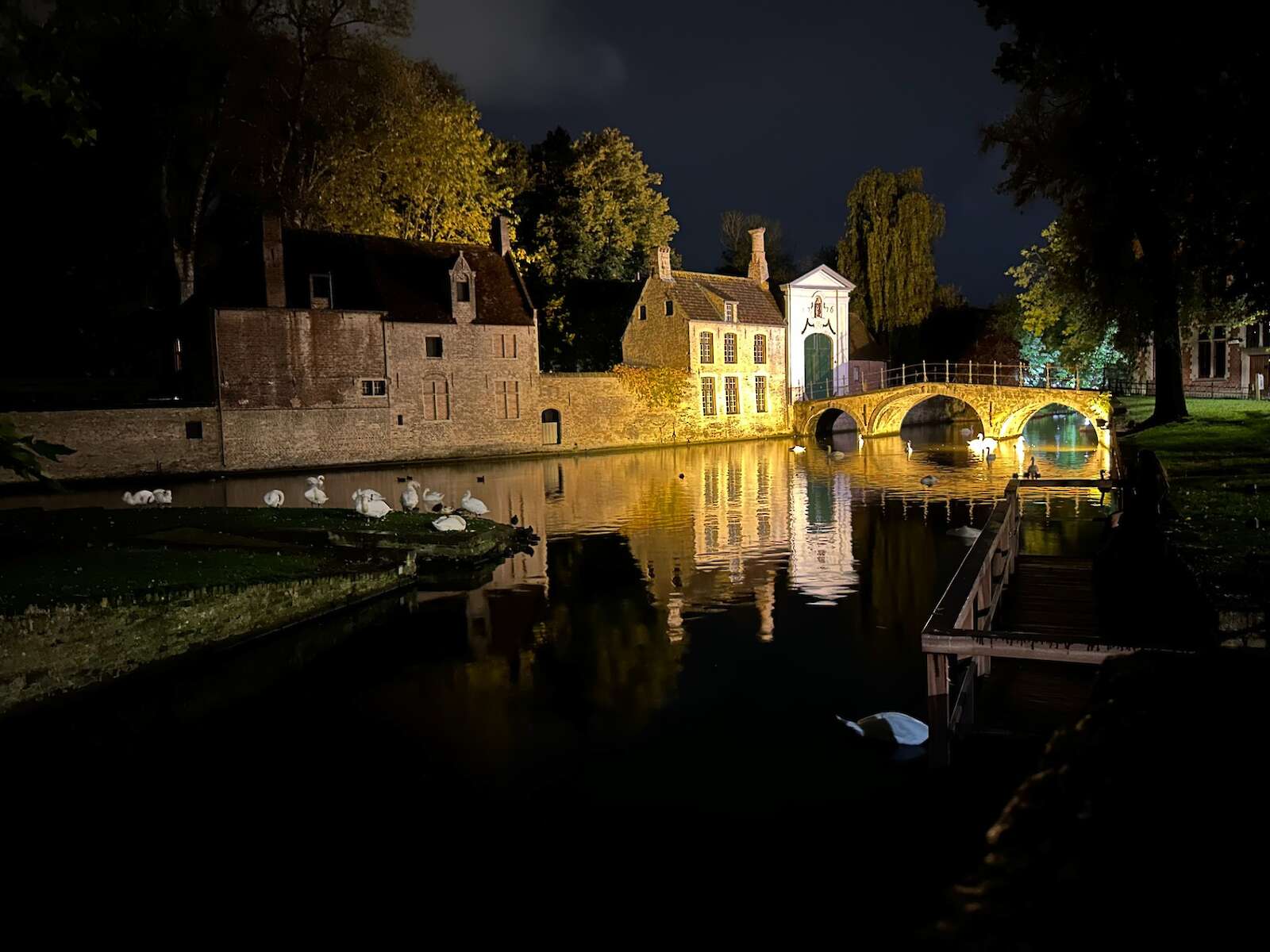
Day 2: Call for Duty in Ghent
At a morning cafe stop, we needed hot tea to warm ourselves that mid-October morn. Unfortunately, we had no euros. Days earlier, we abruptly left our Florida home to avoid a hurricane and airport shutdowns. We had no time to get euros. We now realized that northern Europe excels in preservation and sustainability, but its small-town merchants don’t do credit cards. Fortunately for us that morning, a friend we’d met aboard ship treated us to a steaming cup of Earl Grey.
Hours later we arrived in the medieval city of Ghent, home to 12th-century Gravensteen castle and other must-sees. We quickly hit a fast-food restaurant where Visa was king. After some sustenance, I trekked three flights of stairs searching for the “water closet.” There, outside the restroom, two older women claimed a small table. They were part of a collective of seniors who, in almost mafioso style, provide access for those with cash.
In many parts of Europe, pay-to-go facilities have attendants. The usual fee of a euro helps cover maintenance, supplies and labor, according to a recent Washington Post piece. Even a few days earlier, as we transferred trains in Antwerp’s storied Central Station, we found credit-card-only bathrooms. Not everyone appreciates the system. A columnist for London-based The Guardian opined a few years ago: “No one should have to pay to pee: It’s time for a toilet fightback.”
Back in Ghent at the lunch stop, we plopped a couple of U.S. dollars into the attendants’ box so we could “do our business.” We then strolled cobblestone streets along the square before meeting our group for a boat tour of guild houses, residences, and cafes along the Scheldt.
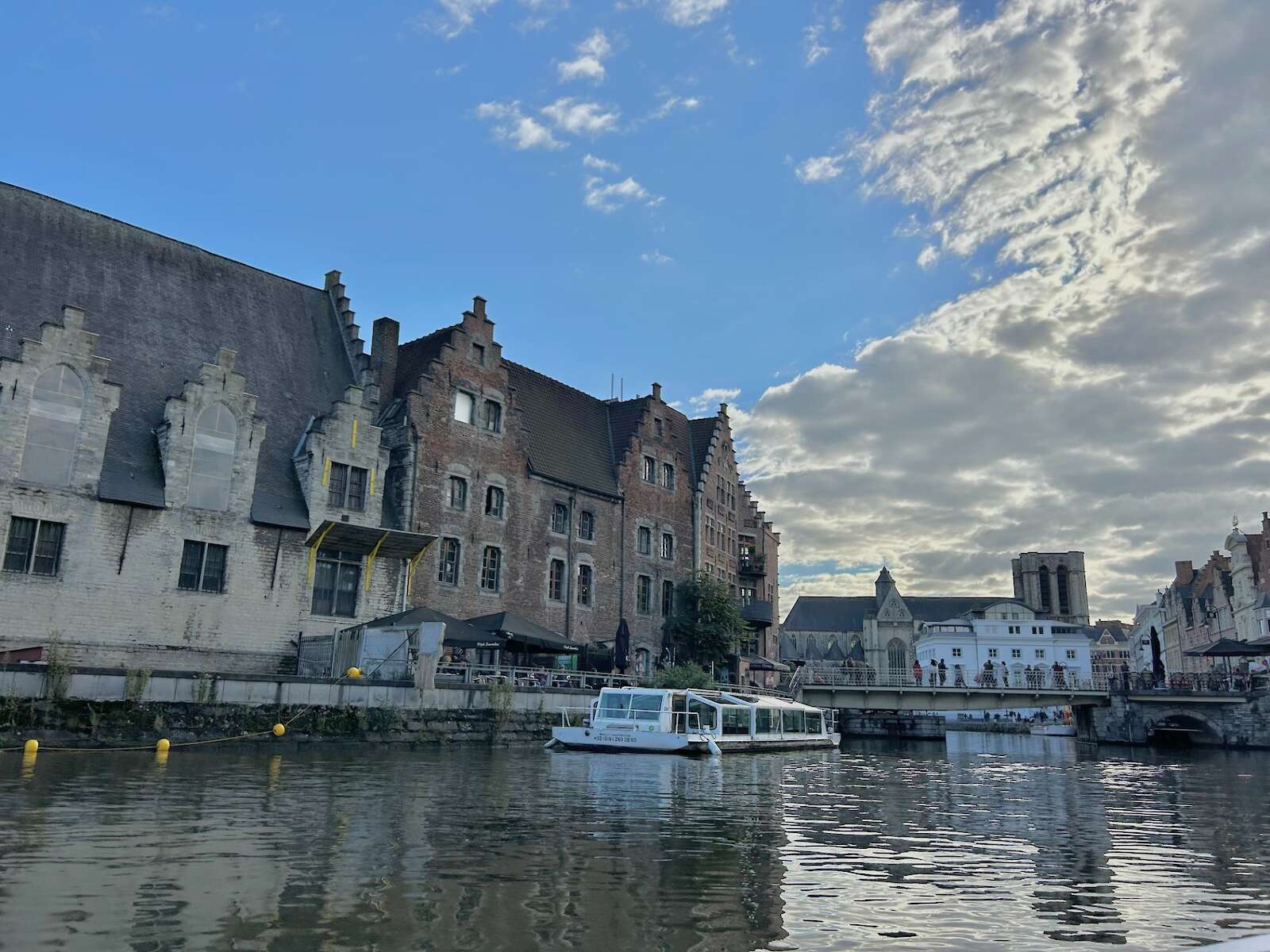
That evening as we reunited with our vessel, our cash concerns quickly disappeared when we found a cheese board and beverages awaiting before dinner. The crew member manning the bar asked only for our room number when we later ordered a glass of wine. A new day would surely bring a working ATM.
Day 3: Credit and good cheer
As we set out the next morning, guides treated us to an Instragram-worthy stop at Laarne Castle with mote waters reflecting well-preserved fortress walls.
Then, in a light drizzle, our guides escorted us to a lakeside cafe with outdoor tables protected by umbrellas. We all enjoyed the sandwiches we’d packed as part of the breakfast buffet aboard ship. Mine was shaved ham, brie, and fresh greens between thick slices of wheat bread. With the water bottles we brought along, we’d be okay. But how could we manage an entire week?
At an afternoon stop in the town of Dendermonde, our guides told of its Palace of Justice. A few of us decided to clink glasses in a nearby pub. We were in luck. They took credit. Over Belgian “triple” beers, our new friends regaled us with stories of an ill-fated trip to Siberia. Later at our port in St. Amands, my husband and I took in rows of religious paintings inside the Sint-Amanduskerk Catholic Church. That evening, our guides treated us to a gallery of sculptures crafted from prehistoric stones. Meeting the artisan polished off the day.
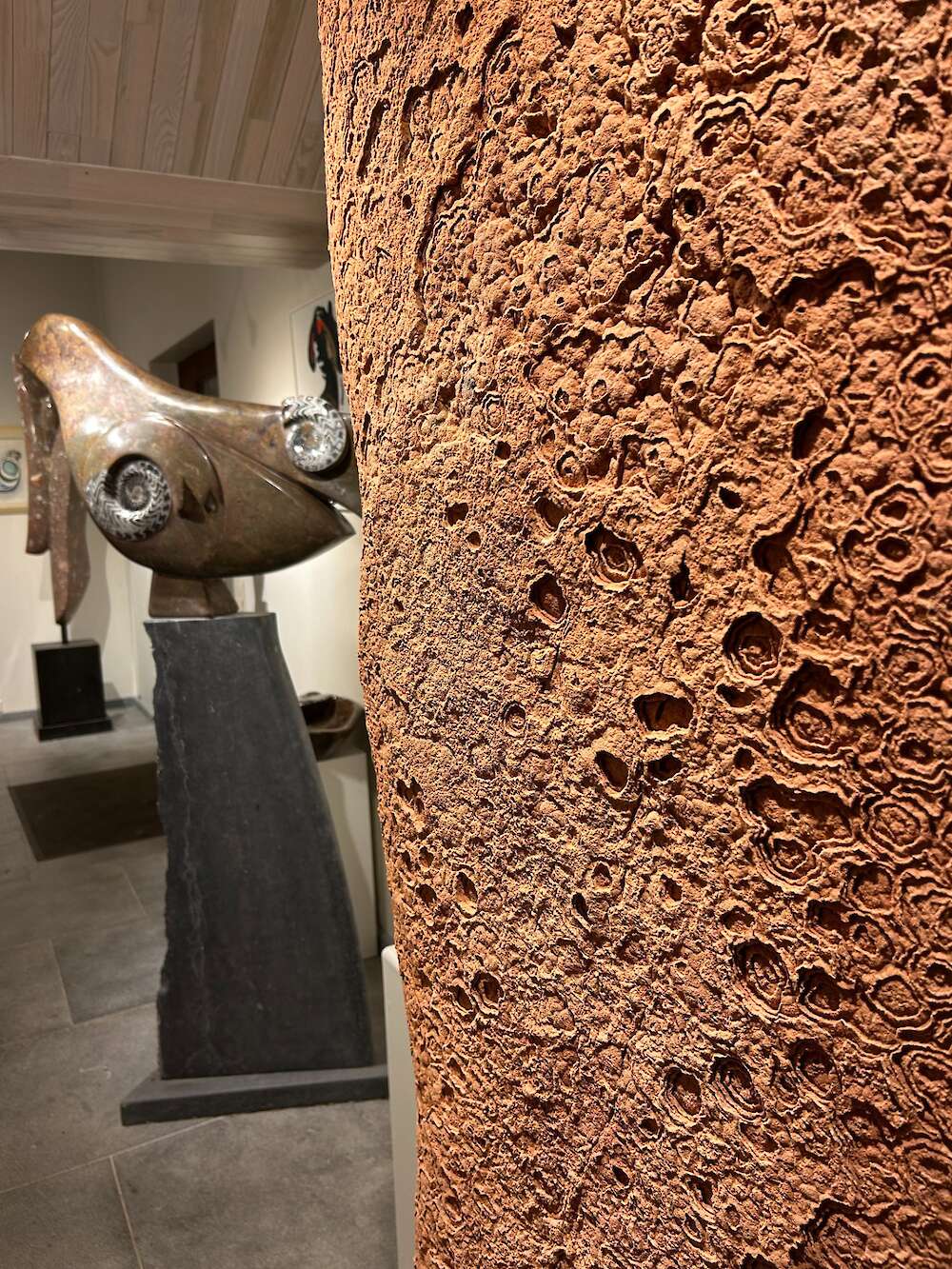
Back at the Magnifique that night, we learned that we were not the only ones lacking euros. Two other guests also hunted them. One of our guides mapped detailed directions to ride to a currency exchange in Antwerp, just a few miles from the group.
Day 4: A hand for the exchange
Antwerp rose on the horizon that fourth day as we skirted dairies, vegetable farms and quiet towns. Beyond the prospect of getting euros, guides told of Antwerp’s hallmark statue featuring a mythical Roman soldier raising the hand he severed from an onerous giant. Of all my trip photos, that became my phone screensaver.
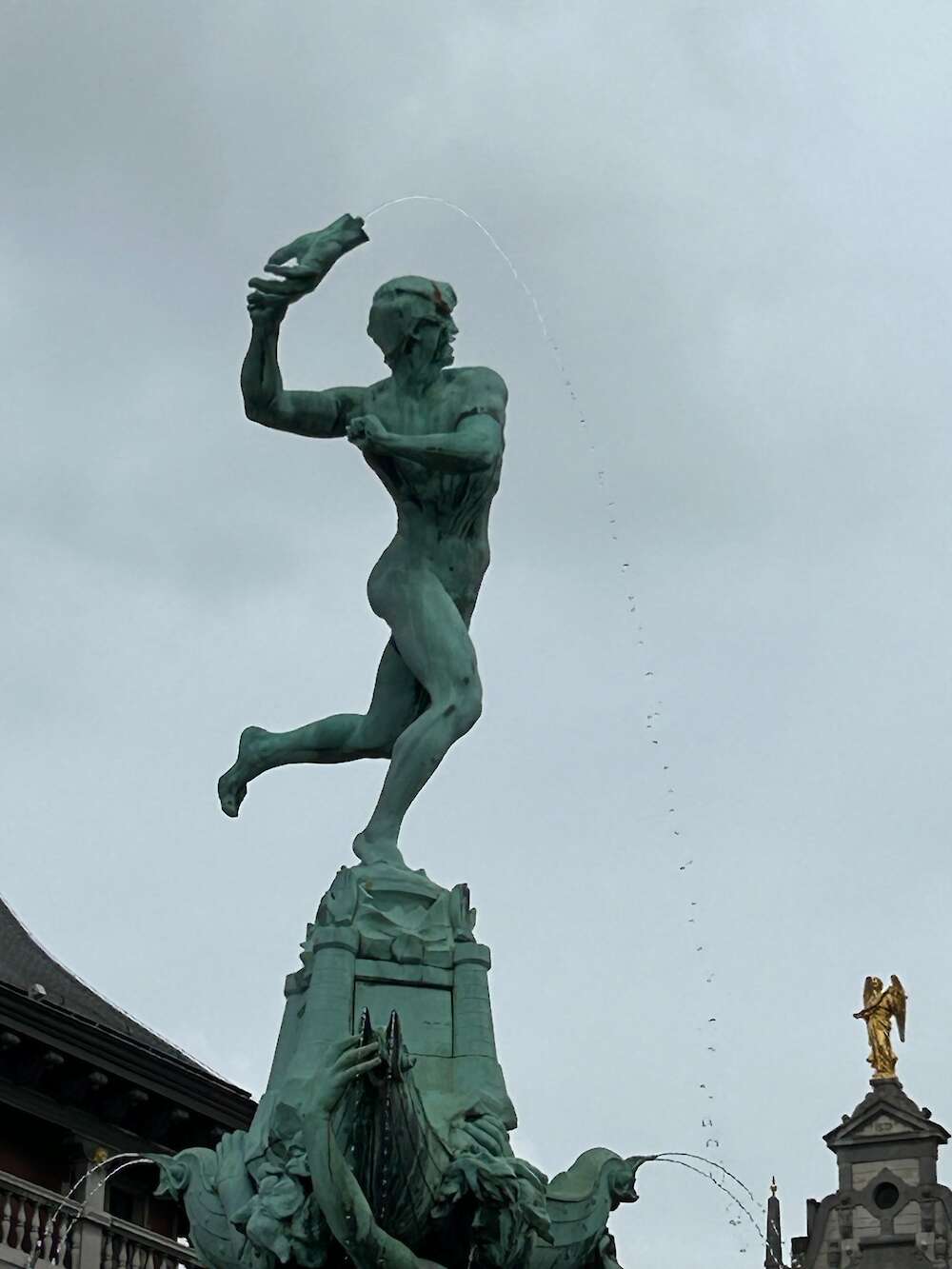
Our time in Antwerp would be a tour highlight for me. Led by a another guest, my husband and I navigated crossings and rode through pathways bustling with beautiful people and even a few bands. We made it to the exchange, got our euros and swung back in time to see a model of Antwerp displayed at the visitor center.
For at least a bit, all was right with the world.
Day 5: Round’s on me
We awoke the next morning to rain. Somehow, though, it didn’t seem to deter anyone. We donned rain gear and set out for a forest worthy of Grimm’s fairy tales. At the morning “coffee stop,” our guide watched our bikes as we sat in comfy chairs and sipped Americanos from small porcelain cups. So thrilled with my newfound euros, I bought a round for several fellow travelers. We girded for the rest of the wet ride, not knowing we would soon visit a place we’d talk about for the rest of the trip.
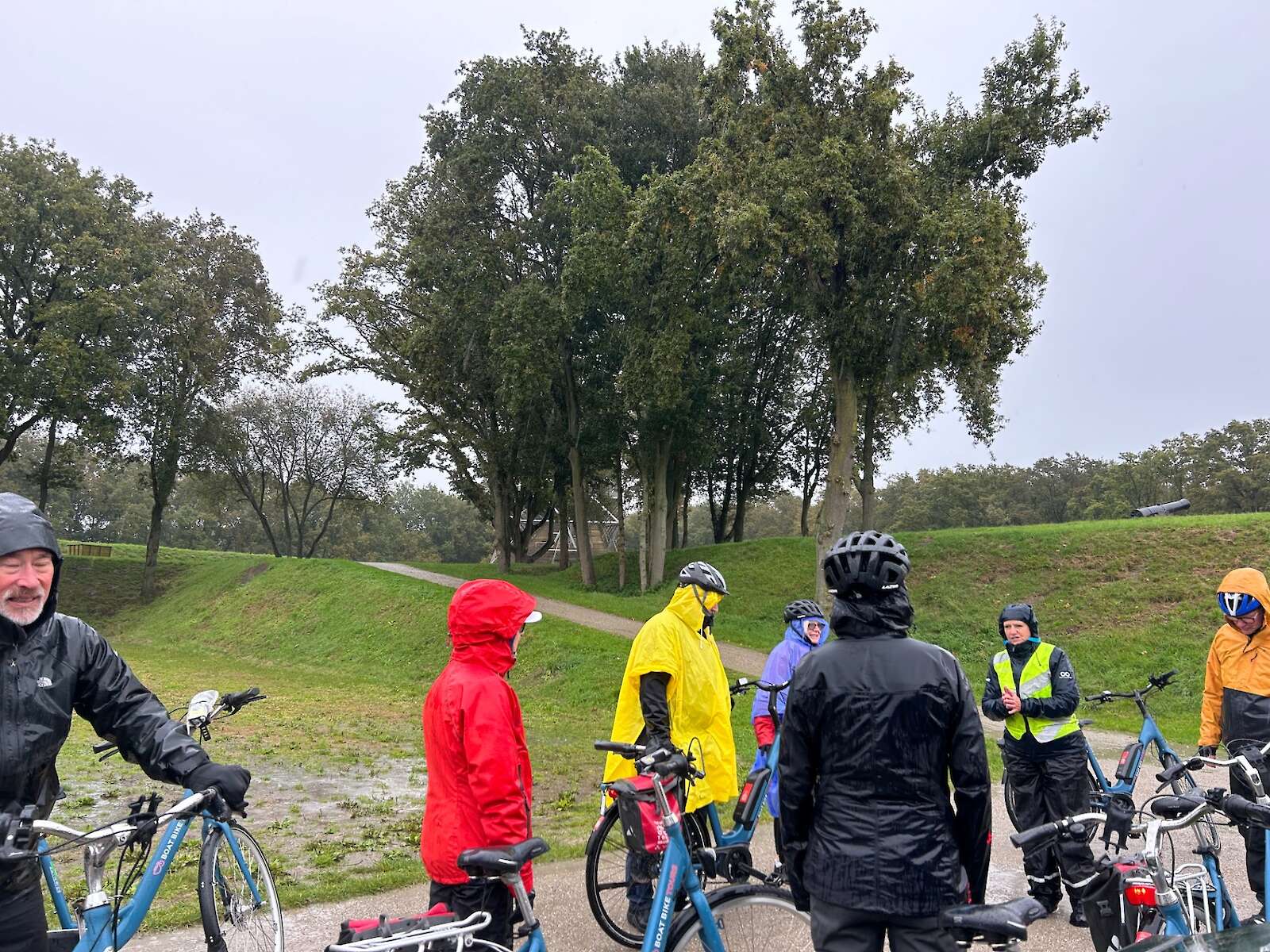
Glass pitchers of hot chocolate paired with shot glasses of white rum awaited us on the Magnifique. Hot showers and a dinner of grilled shrimp, flounder, sausage, chicken, and steak restored us. Then the guides beckoned us for a walking tour around the island city of Dordrecht. Canals glistened with the lights of local homes. Our evening tour offered glimpses inside a few artfully appointed residences. Shopkeepers seemed to compete for “Most Clever” awards.
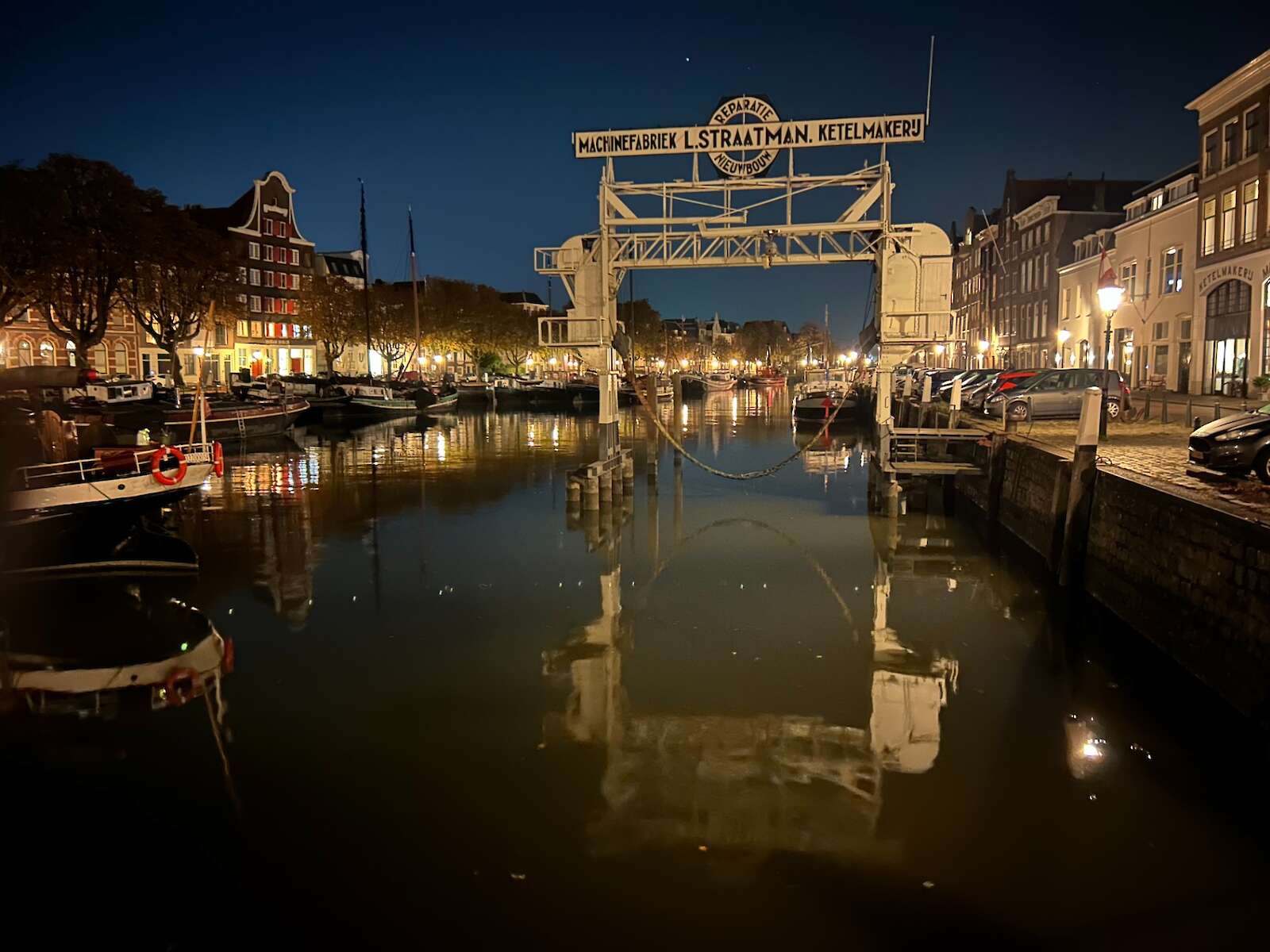

Our guides explained the lore behind the town’s sheep illustrations. We had survived a few days without euros, a day of riding in the rain and now we had landed in a place of magic.
Somehow, it got even better.
Day 6: Open-door windmills
That next day’s GPS tracks led us to the historic Kinderdijk community, where we toured more than a dozen windmills, all part of a UNESCO World Heritage Site. Behind the churning shadows of windmill blades, we stepped into a giant time capsule with black and white family photos, a baby cradle, and rows of wooden shoes. The admission price was covered and my precious euros stayed tucked away.
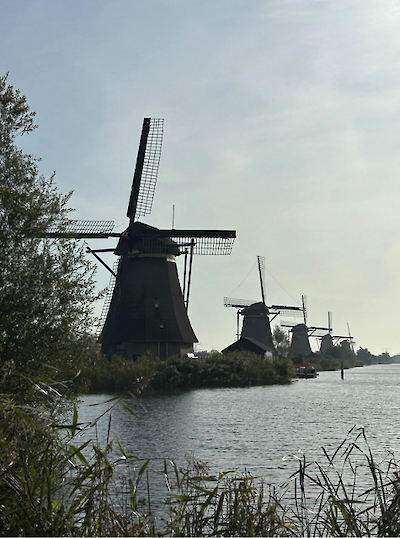 | 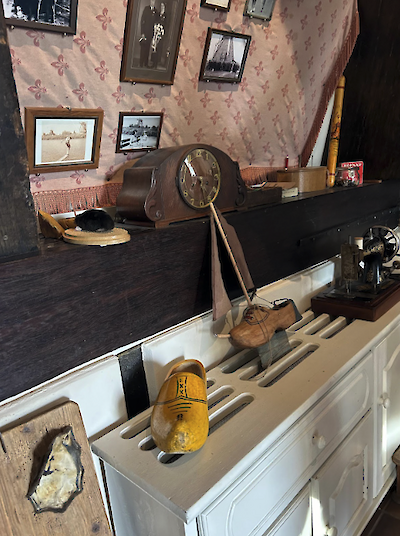 |

This happened to be my birthday and I was in the perfect spot – a Dutch town renown for silversmiths. Schoonhoven’s historic storefront windows cradled an array potential birthday gifts. By now, though, my husband had realized he needed only a few euros for our day trips. He left his credit cards locked away in our suite. What a shame. That night, back in our nest, we all toasted the day – and many other things – during a Belgium beer tasting. Proost!

Days 7, 8: Say cheese
Our last day of riding started along the Vecht River. The visuals of the day seemed like flipping through a coffee table book of Dutch backyard gardens. Even though the miles were longer that day, touring a working cheese farm and entering the bustle of Amsterdam made miles disappear.
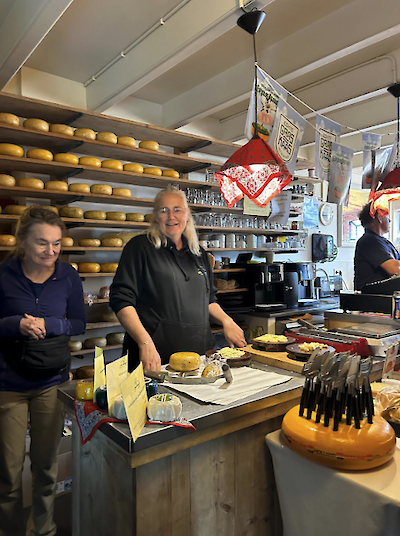
Back for our last night, we tucked an ample amount of our hard-won euros into an envelope in appreciation of the guides and crew members who exceeded our expectations. Instead of being a deal-breaker, our currency search helped cement some friendships, made for a fun Antwerp adventure, and gave us a good story to tell.
 | Longtime journalist Mary Shanklin is an author and adjunct instructor at the University of Central Florida. |
Looking to create your own travel memories? Take a look at all of our bike and boat tours or all our tours in Holland and Belgium.
